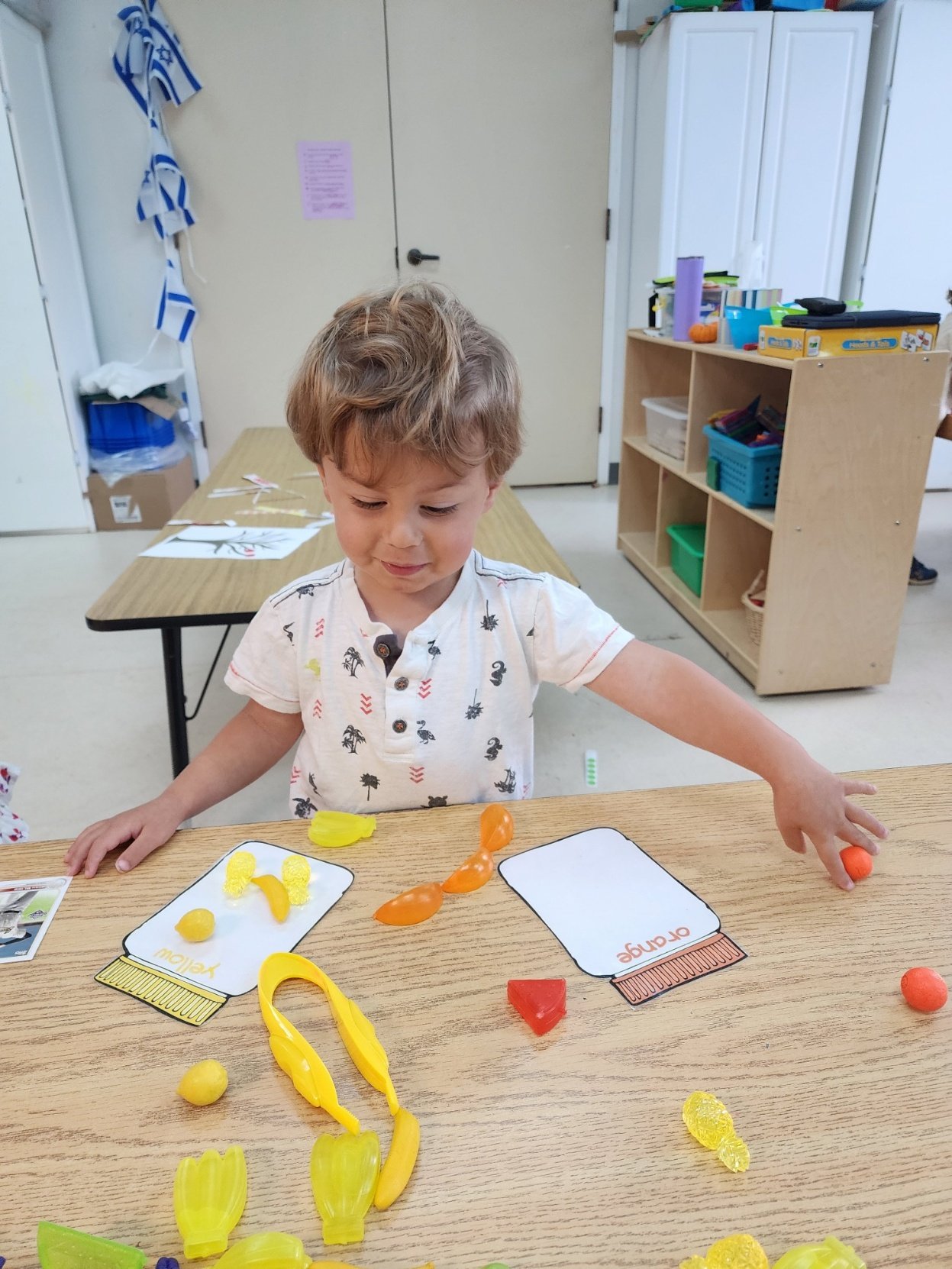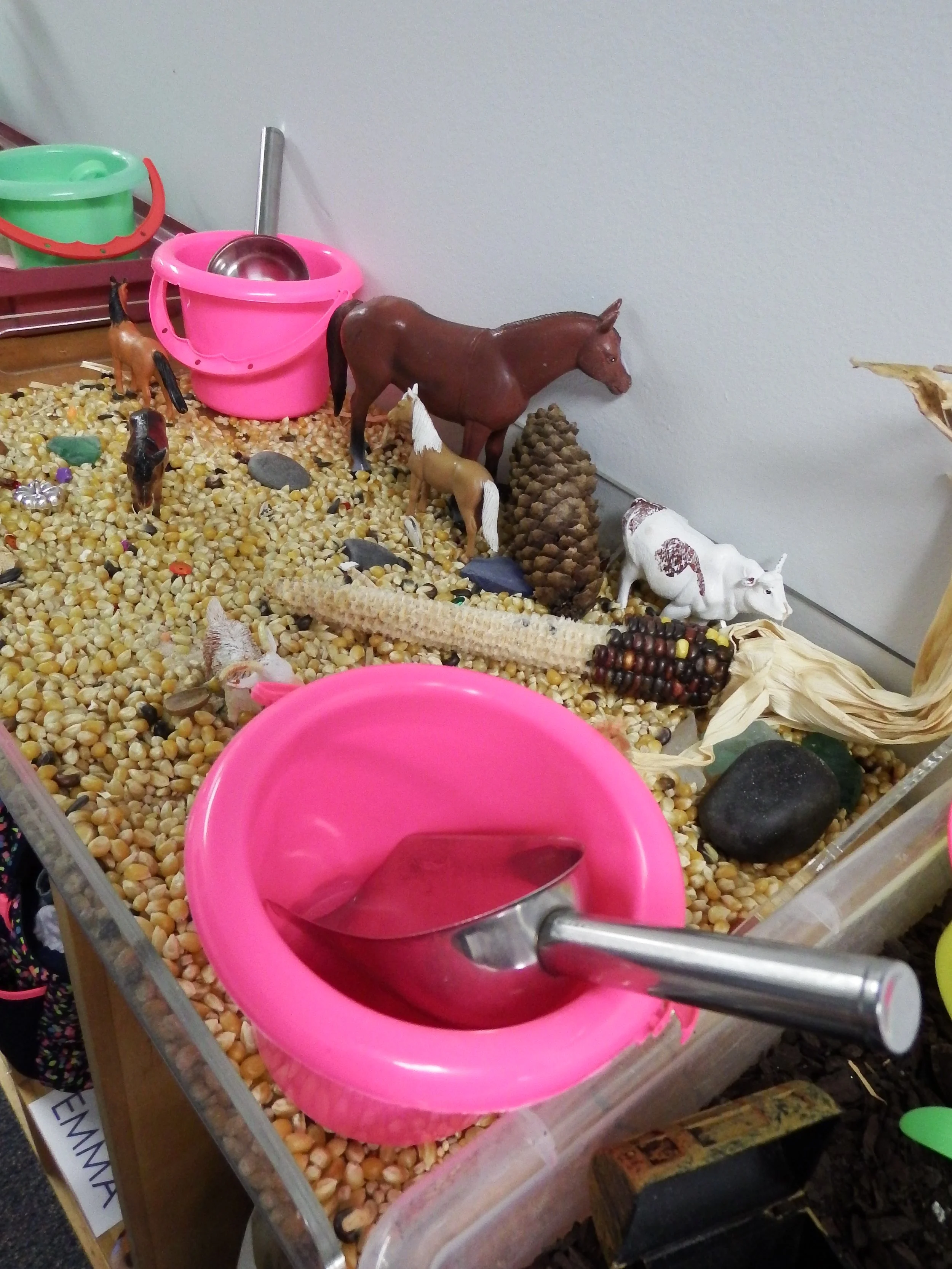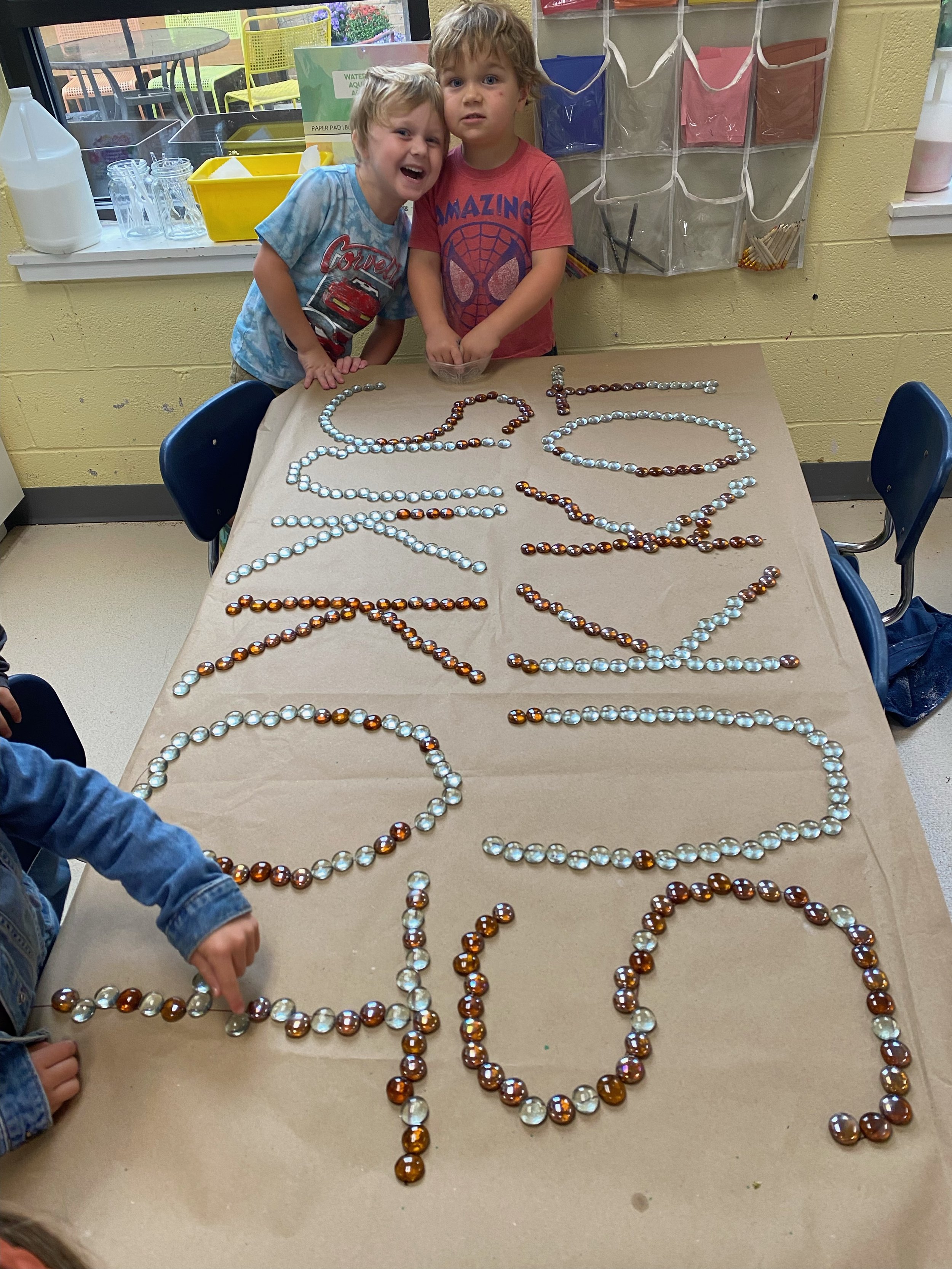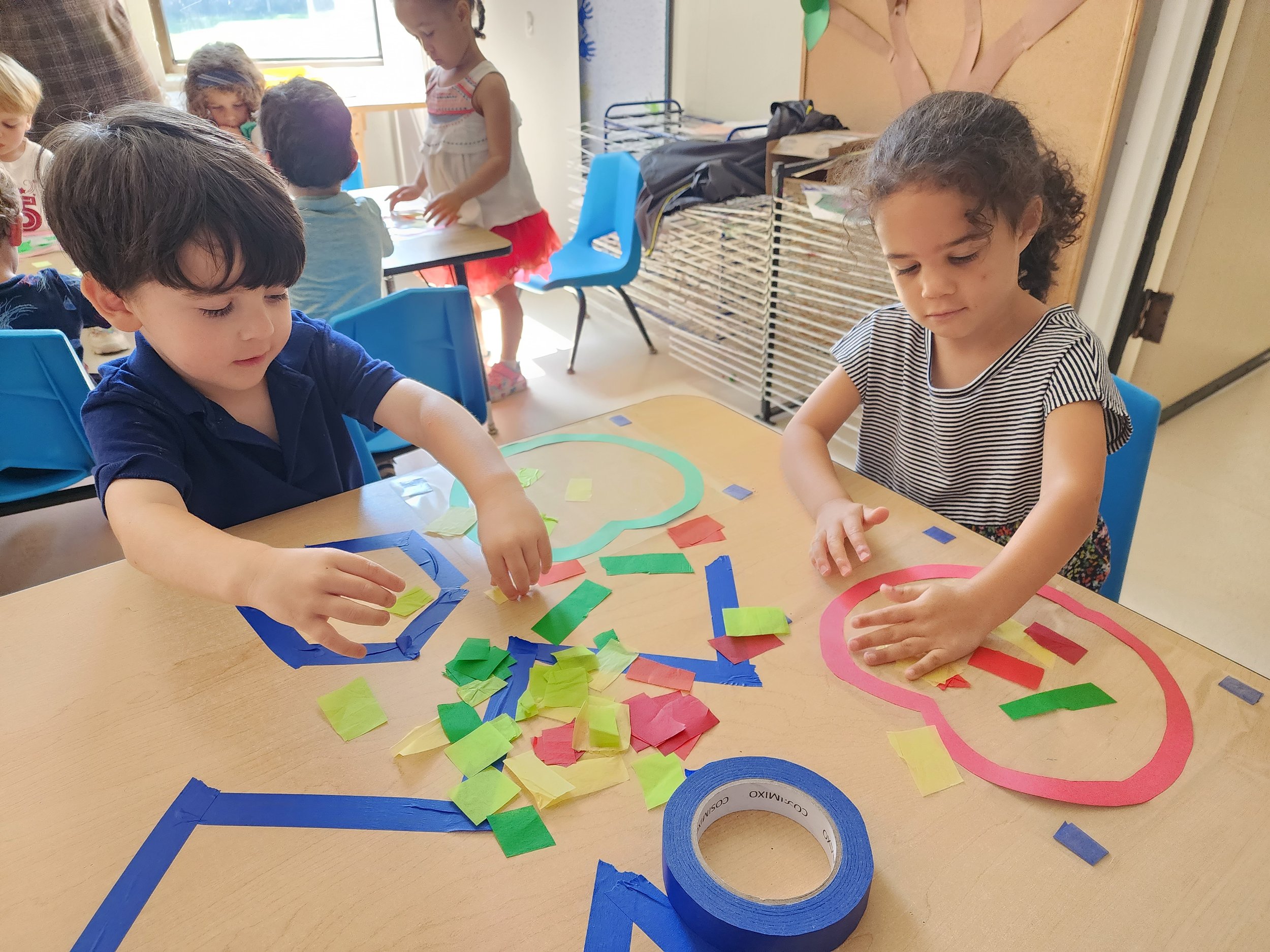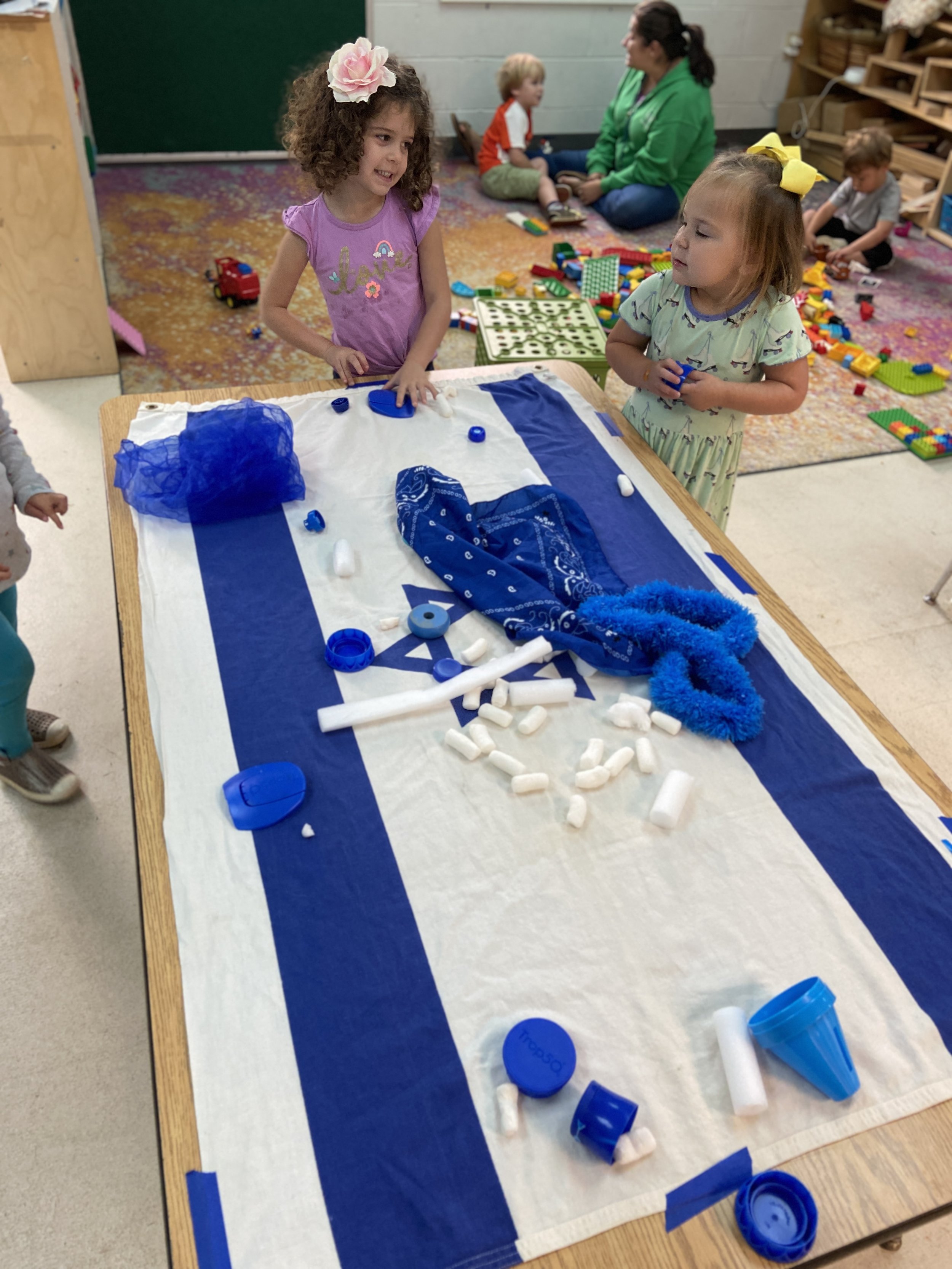Why Play Matters
At B’nai Shalom, we emphasize the importance of play as an instructional strategy that promotes curiosity, information-seeking, eagerness, risk-taking, problem-solving, flexibility, attentiveness, effort, and persistence. We use our Loose Parts curriculum to encourage play which therefore help our students learn. Loose Parts are objects and materials that children can move, manipulate, control, and change, all through play. There are no specific directions which encourage open-ended play. And with infinite play possibilities, Loose Parts spark curiosity, critical thinking, innovation, and allow our students to use their imaginations.
Play looks different for different age ranges.
Infants may show interest in other children playing by imitating sounds, gestures, and sometimes facial expressions.
Toddlers may play alongside one another, sometimes imitating others actions.
2 and 3 year olds may try to involve other children in their play.
Older preschool children may engage in dramatic make-believe play.
Each child grows and develops at their own pace. This uniqueness and individualization is recognized and affirmed at B’nai Shalom. When asked at the end of the day what they did at school and our students say “I played,” we know that they had a day full of learning, discovering, and growing!
